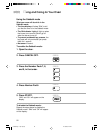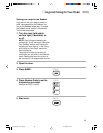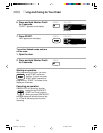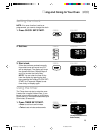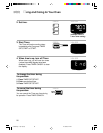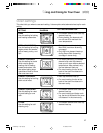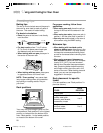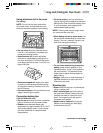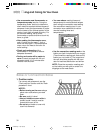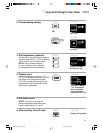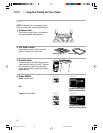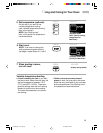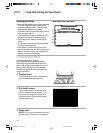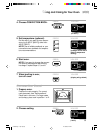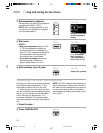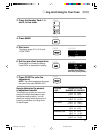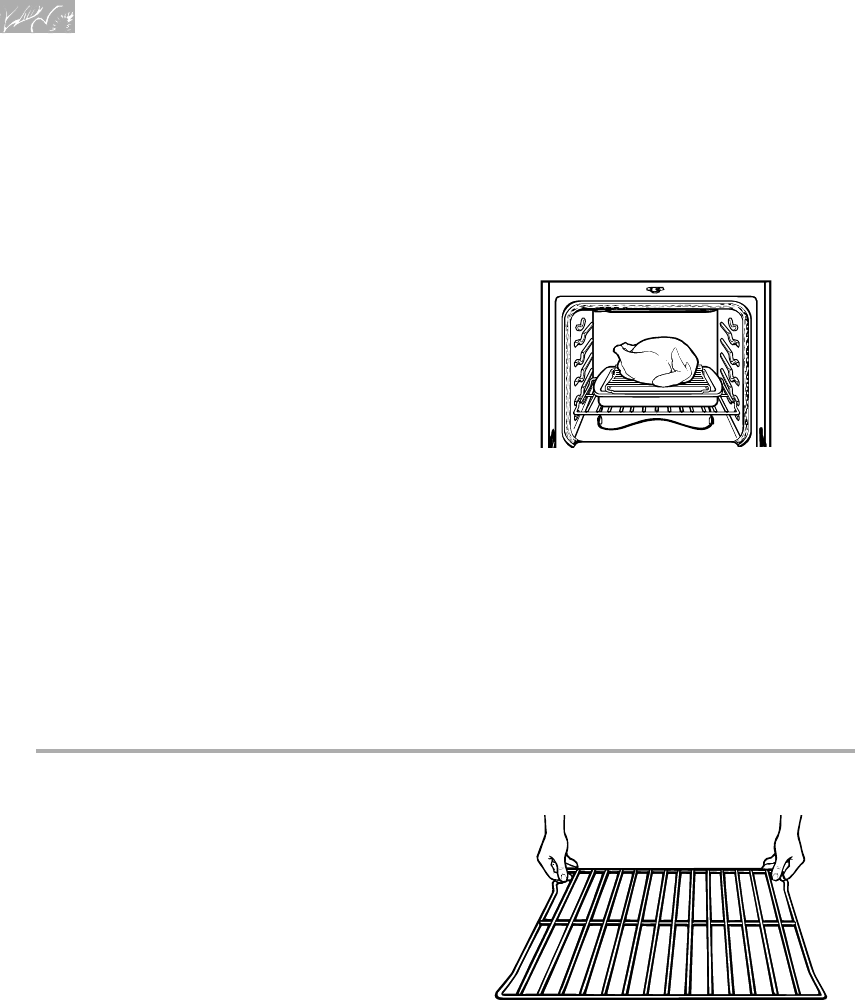
30
• Use an accurate meat thermometer or
temperature probe (see the “Using the
temperature probe” section) to determine
when meat has reached desired degree of
doneness. Insert the thermometer or probe
into the center of the thickest portion of the
meat or inner thigh or breast of poultry. For
an accurate reading, the tip of the
thermometer or probe should not touch fat,
bone, or gristle.
• After reading the thermometer once,
push it further into the meat
1
⁄2 inch or
more and read again. If the temperature
drops, return the meat to the oven for
more cooking.
• Check pork and poultry with a
thermometer in 2-3 places to ensure
adequate doneness.
• Poultry and roasts will be easier to
carve if loosely covered with foil and
allowed to stand 10-15 minutes after
removal from the oven.
• You can reduce roasting times and
temperatures for most standard recipes
when using the convection roast setting.
See convection roasting chart in your
convection oven cookbook for recom-
mended roasting times and
temperatures.
• Use the convection roasting rack on the
broiler pan (both included with your range).
(The convection roasting rack rests on the
broiler pan, not inside it.) The long side of
the rack should be parallel with the oven
door for best heat distribution and airflow.
NOTE: Place the convection roasting rack
on the broiler pan with grid to contain the
drippings as the meat roasts.
U sing and Caring for Your Oven
Bake or Convection Bake
1. Position racks.
For correct rack placement, see the
“Rack positions” section and the “Rack
placement” chart.
NOTES:
• Before turning on the oven always
place oven racks where you need
them.
• Be sure rack(s) is level.
• Use pot holders or oven mitts to
protect hands if rack(s) must be
moved while oven is hot.
• Do not let pot holder or oven mitt
touch hot elements.
9753309A(p. 1-40)v16(c87) 12/16/98, 8:44 AM30



